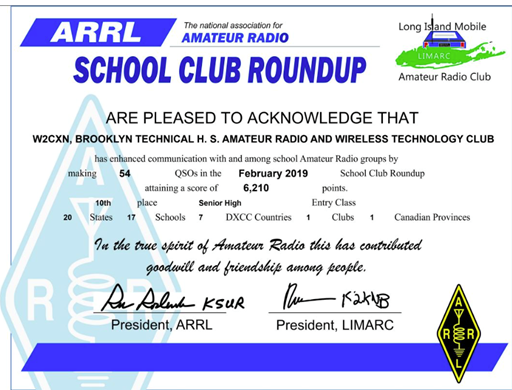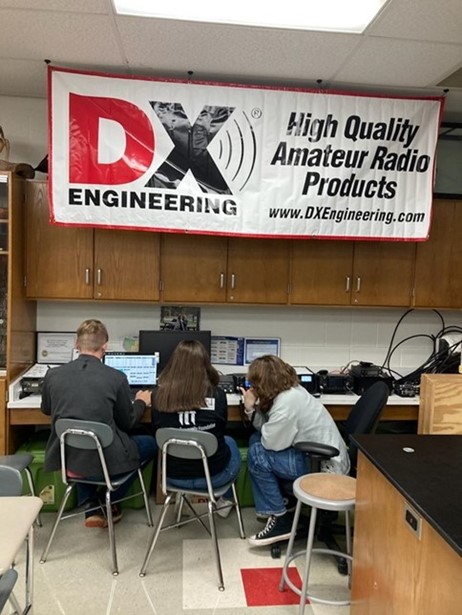A big event for young amateur radio operators is coming up in a few weeks: the bi-yearly ARRL School Club Roundup (SCR). Every February and October, this weeklong operating event takes place, encouraging young hams (and not-yet hams, under a club callsign!) to get on the air. The event facilitates countless first contacts for young people in the U.S. and around the world.
The 2025 fall session runs Monday, Oct. 20, 1300 UTC through Friday, Oct. 24, 2359 UTC.
As the name implies, the School Club Roundup is geared toward K-12 and university amateur radio clubs, but anyone can (and should!) participate, no matter their age, equipment, or skill level. Even if you’re an experienced ham, getting on the air and making contacts with schools is a great way to encourage the young people operating to get their licenses and get involved with the hobby.

School Club Roundups are always highlights of the year for my school’s club, particularly the younger members. After getting to operate in a roundup, most club members who are on the fence about wanting to get their license decide to study and take the test. Having the opportunity to get on the air and see what amateur radio is all about is incredibly impactful for young people who are unfamiliar with the hobby and wondering if it’s something they should pursue.
My school’s station, K8LPS, has participated in the SCR as a club since before we had a permanent station. We started out with just 100 watts and a wire, so getting on the air for the event is very doable even without a lot of equipment or time. One of our local clubs lent us their go-box station and wire antenna setups for the first few years, and we managed to be very successful with these somewhat minimal setups. Installing a fixed station at the school did make getting on the air for the roundups (and just in general) much easier, but it’s certainly not necessary in the beginning.

A convenient aspect of the SCR is that it is a weeklong event. There are no restrictions on whenoperations can take place between the start and end of the week, but rules state that a club may operate no more than six hours in a 24-hour period and no more than a total of 24 hours during the event.
My school’s club typically makes a week out of the roundup. We stay after school until 6 or 7 pm and usually have dinner together (food is always a big motivating factor for younger club members). This is also a nice setup because the kids who attend can learn about how propagation changes throughout the day, when it’s best to switch bands or modes, and where they have the best chances of success.
It’s entirely possible to have a successful school club roundup operation without dedicating every evening throughout the week. Operation could be limited to during the school day when the kids who are interested have free time—during lunches, study halls, or other breaks. It’s important not to forget that there must be a control operator present at all times, especially since the event is designed to get both licensed and unlicensed people on the air.
If you’re interested in hosting an operation for a school club or just a club of young people, you’ll learn what works best for them fairly quickly, but here are a few general tips:
- Patience is key. If you’re holding a roundup operation for a school club, it’s fairly likely that a large portion of your participants won’t ever have operated on HF (or at all) before. They will need lots of explanations and help to get through the first few QSOs, which is perfectly fine.
- It’s also a good idea to have multiple modes available, primarily SSB and a few digital modes that the control operator is comfortable with and can explain how to use. Digital modes are a great way to break the barrier of mic fright. This frequently leads to the young operators wanting to give SSB a try.
- Having the option for CW won’t hurt either, although it’s unlikely that there will be a large population of CW operators in any school club group. Even if the CW equipment doesn’t get used on the air, it may still be enjoyable for the young people to see a demonstration of how CW works.
The School Club Roundup is a great opportunity to expose young people to what amateur radio is and why people enjoy it so much. I hope to hear many of you on the air making contacts with the school stations and supporting young people interested in ham radio!

